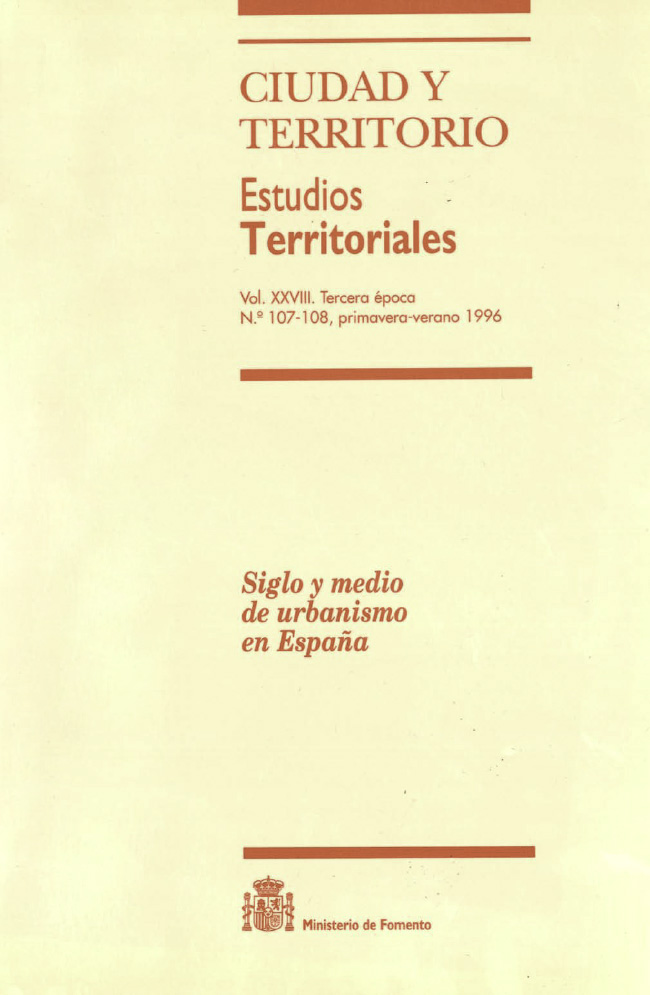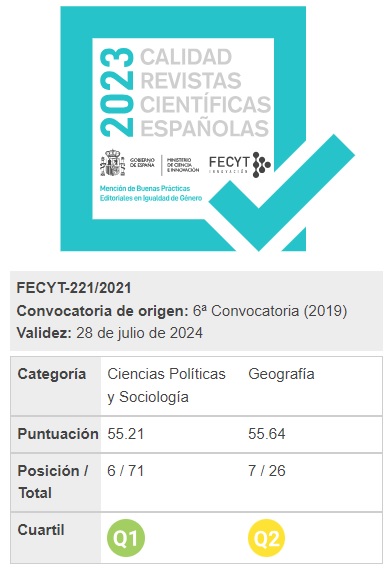The beginnings of Town Planning legislation during the period of Moderate Liberalism and the Seven Years of Revolution (1846-1876): the extending of the city [ensanche] as a model for urbanism and its related legal sistem
Abstract
The discovery (1991) and publication of the unpublished works of I. Cerda is here felt to give rise to a call for a thorough-going revision of what were felt to be the origins of modern Spanish town planning legislation, an undertaking to which the author has already addressed himself to in his Génesis y Evolución del Derecho Urbaniístico Espanol, (1973). Abounding in the considerations there set forth, the present paper underlines both the evolution of said author's thinking and the way this radically altered both theoretical thinking to and professional practice of Spanish urbanism as against the development of either during the same period in other european countries. While mentioning Cerdá's involvement with city centre renewal, the paper holds that his major contribution was the way he laid out how a city should be extended [Ensanche] as a theory of and model for urbanism, offering furthermore sound juridical and economic support systems for his formulations. It is here felt that the Spanish Legal System only made its own the formal and descriptive aspects of Cerdá's contribution while straying from the thinking that inspired these.
Downloads
Downloads
Published
How to Cite
Issue
Section
License
Copyright (c) 1996 Martín Bassols Coma

This work is licensed under a Creative Commons Attribution-NonCommercial-NoDerivatives 4.0 International License.
Considering the provisions of the current legislation on Intellectual Property, and in accordance with them, all authors publishing in CyTET give -in a non-exclusive way and without time limit- to the Ministry of Transport, Mobility and Urban Agenda the rights to disseminate, reproduce, communicate and distribute in any current or future format, on paper or electronic, the original or derived version of their work under a Creative Commons Attribution-NonCommercial-NoDerivative 4.0 license International (CC BY-NC-ND 4.0), as well as to include or assign to third parties the inclusion of its content in national and international indexes, repositories and databases, with reference and recognition in any case of its authorship.
In addition, when sending the work, the author(s) declares that it is an original work in which the sources that have been used are recognized, committing to respect the scientific evidence, to no longer modify the original data and to verify or refute its hypothesis. Author(s) also declare that the essential content of the work has not been previously published nor will it be published in any other publication while it is under evaluation by CyTET; and that it has not been simultaneously sent to another journal.
Authors must sign a Transfer of Rights Form, which will be sent to them from the CyTET Secretariat once the article is accepted for publication.
With the aim of promoting the dissemination of knowledge, CyTET joins the Open Journal Access (OA) movement and delivers all of its content to various national and international indexes, repositories and databases under this protocol; therefore, the submission of a work to be published in the journal presupposes the explicit acceptance by the author of this distribution method.
Authors are encouraged to reproduce and host their work published in CyTET in institutional repositories, web pages, etc. with the intention of contributing to the improvement of the transfer of knowledge and the citation of said works.








 Enlace a CyTET en Linkedin
Enlace a CyTET en Linkedin